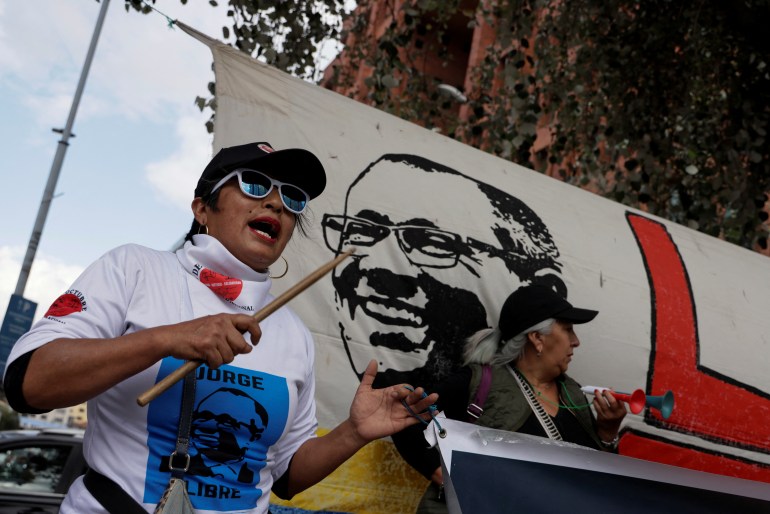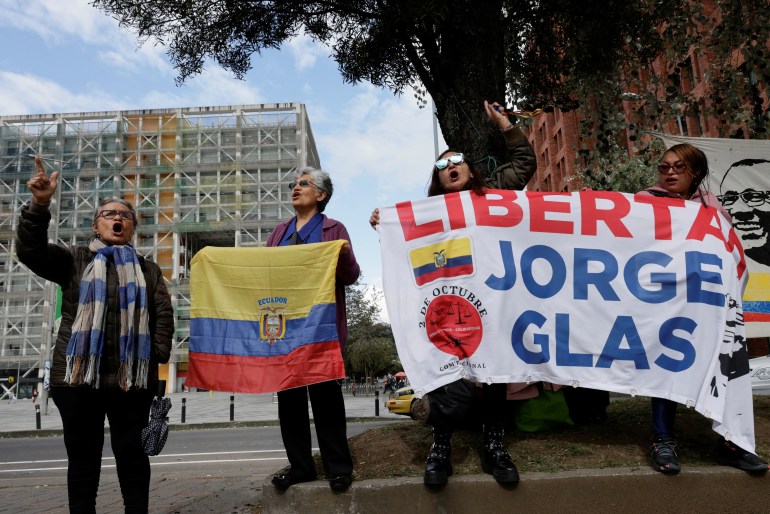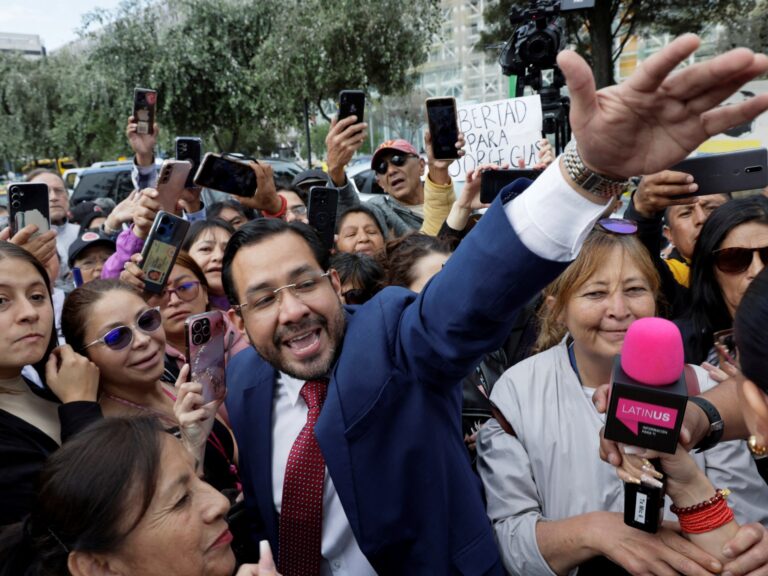But the three-member panel also upheld his ongoing imprisonment, arguing that it could not “modify” his sentence.
The defense of former Ecuadorian Vice President Jorge Glas welcomed the decision declaring his arrest inside the Mexican Embassy in Quito illegal.
However, on Friday, lawyer Sonia Vera Garcia pledged to appeal the judgment, which confirmed her client’s continued detention.
“We thank the international community,” she said wrote on social media platform X. “His support led to declaration of arbitrary detention, a step forward. »
“However, Jorge remains detained. We will appeal until we obtain his freedom.
The move comes after Francisco Hidalgo – a member of Glas’ left-wing political party, Citizen Revolution – filed a habeas corpus petition earlier this week on behalf of the former vice president, arguing that he had been illegally detained.

Glas’ arrest was the subject of ongoing international tension. On April 5, Ecuadorian police stormed the Mexican embassy, scaling the fence and pointing a gun at a senior diplomat who sought to block their entry.
In its ruling on Friday, a three-member tribunal in Ecuador found that the arrest on embassy grounds had indeed been “unlawful and arbitrary.”
Judge Monica Heredia wrote that “without the authorization of the head of the Ministry of Foreign Affairs and Political Affairs of the Mexican Embassy in Ecuador, the detention became illegal.”
International law protects embassies and consulates from interference by local law enforcement. This “rule of inviolability” theoretically allows diplomats to carry out sensitive work without fear of reprisal from their host country.
But embattled public figures like Glas have also turned to embassies to seek temporary refuge from arrest, knowing that local police are not supposed to enter without permission.
Glas has been convicted twice on corruption-related charges. He was sentenced to six years in prison in 2017 and eight years in 2020.
Hours before his arrest, the Mexican Foreign Ministry announced that it had granted political asylum to Glas, who had been taking refuge in his embassy in Quito since December.

But the raid on the embassy sparked a real dispute between Mexico and Ecuador.
In its wake, Mexico broken diplomatic relations And recalled his staff at the Ecuadorian embassy. Countries in Latin Americaas well as the Organization of American States (OAS), also denounced the police raid.
But the government of the Ecuadorian president Daniel Noboa sought to defend the raid as authorized by the executive order.
Furthermore, he argued that Glas should not be eligible for political asylum because his convictions were not the result of persecution.
But the three-member court said Friday that the government’s defense of the raid “lacks legal basis.”
Yet even though the court ruled that the arrest itself was illegal, it ruled that Glas should remain behind bars, given his prior convictions.
“This court cannot modify the sentence,” Judge Heredia said.
Glas is currently serving his prison sentence in Guayaquil, where he is on a hunger strike in protest. He was hospitalized earlier this week.
Thursday, Mexico filed a complaint with the International Court of Justice to expel Ecuador from the United Nations over the embassy raid – at least until the country issues a formal apology for its violations of international law.


